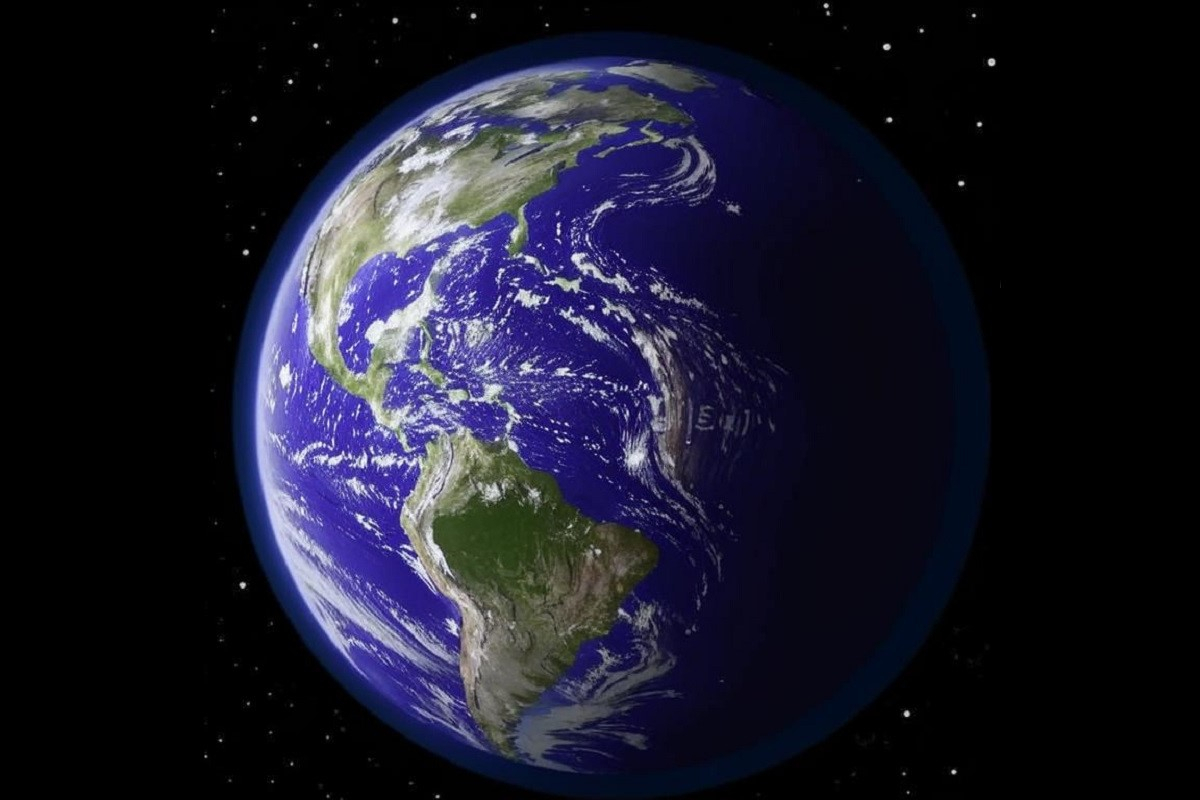St Petersburg University scientists: the amount of ozone-depleting gases decreases in St Petersburg
Physicists from St Petersburg University have measured the level of halides involved in the destruction of the ozone layer over the Northern Capital of Russia. It turned out that their concentration has been decreasing every year for the past 15 years.

The ozone layer plays a key role in sustaining life on Earth by trapping harsh ultraviolet radiation from the Sun, which is dangerous to living organisms. Depletion of the ozone layer can cause damage and even death to life on Earth. Many methods have therefore been developed to monitor the state of the ozone layer.
The research findings are published in the International Journal of Remote Sensing.
Interestingly, both ozone levels and ozone-depleting substances are monitored. The Montreal Protocol, which limits emissions of ozone-depleting substances, has been in force since 1989. To monitor the state of the ozone layer, experts keep track of the concentrations of chlorine-containing substances that are most harmful to the ozone layer.
During the autumn-winter season, stratospheric vortices form over the polar regions of the Earth, isolating the air inside and keeping it at very low temperatures. Throughout the existence of the vortex, active chlorine compounds are released from hydrogen chloride, which participate in ozone destruction cycles in the winter-spring period when solar radiation appears.
St Petersburg University heads the list of research organisations in Russia in the number of publications in Scopus-indexed journals on subjects related to the green transition. Thus, from 2000 to 2021, St Petersburg University researchers published 37 papers in leading scientific journals.
Polar stratospheric vortices can also spread to mid-latitudes. The scientists note that the decrease in hydrogen chloride due to chemical reactions in the atmosphere can indicate the upcoming accumulation of active chlorine compounds and predict possible ozone losses in the atmosphere in spring. To understand whether this decrease is due to chemical processes or, for example, to vertical transport of air masses, the scientists are also monitoring the content of hydrogen fluoride, a long-lived stable gas whose concentration variability indicates the presence of dynamic processes in the atmosphere.
The physicists from St Petersburg University have studied changes in the concentration of halogen-containing substances in the atmosphere over St Petersburg and found that they are decreasing with each year of observation.
In the stratosphere, hydrogen chloride is formed as a result of photodissociation of chlorofluorocarbons and hydrochlorofluorocarbons, which are substances whose emission is banned. We studied total hydrogen chloride and hydrogen fluoride concentrations near St Petersburg from March 2009 to March 2023 and found a gradual decrease in hydrogen chloride concentration at a rate of (-0.26 ± 0.21) % per year.
Svetlana Akishina, Member of the Ozone Layer and Upper Atmosphere Research Laboratory at St Petersburg University
By comparing the ratio of hydrogen chloride to hydrogen fluoride, the University scientists concluded that one of the strongest minima of hydrogen chloride concentration was observed in early 2023. This made it possible to predict the arrival of the polar stratospheric vortex in the atmosphere over St Petersburg.
For reference: earlier, the researchers from the Ozone Layer and Upper Atmosphere Research Laboratory of St Petersburg University found that magnetic storms destroy up to a quarter of the earth’s ozone layer in the mesosphere in one day. The recorded destruction is at an altitude of about 75 km. The scientists have also developed a neural network algorithm to measure ozone levels in the atmosphere from a Russian weather satellite.
St Petersburg University, the oldest university in Russia, was founded on 28 January (8 February) 1724. This is the day when Peter the Great issued a decree establishing the University and the Russian Academy of Sciences. Today, St Petersburg University is an internationally recognised centre for education, research and culture. In 2024, St Petersburg University celebrates its 300th anniversary.
The plan of events during the celebration of the anniversary of the University was approved at the meeting of the Organising Committee for the celebration of St Petersburg University’s 300th anniversary. The meeting was chaired by Dmitry Chernyshenko, Deputy Prime Minister of the Russian Federation. Among the events are: the naming of a minor planet in honour of St Petersburg University; the issuance of bank cards with a special design; and the branding of the aircraft of the Rossiya Airlines to name just a few. To mark the 300th anniversary of St Petersburg University, a postage stamp depicting the Twelve Collegia building and the monument to Count Sergey Uvarov was issued.
By the decision of the Governor of St Petersburg Alexander Beglov, 2024 is a year of the 300th anniversary of St Petersburg University in St Petersburg. On the day of the University’s 300th anniversary torches will be lit on the Rostral Columns on the Spit of Vasilyevsky Island. St Petersburg University flags will be raised on the Palace Bridge. The city public transport will be decorated with the University’s symbols. New tourist maps will feature the locations of the University buildings, with thematic and historical materials about the University placed nearby. During St Petersburg’s City Day celebrations in May 2024, St Petersburg University will be a participating venue. The traditional ‘Scarlet Sails Festival’ will also be dedicated to the anniversaries of St Petersburg University and the Russian Academy of Sciences. Additionally, the University has launched a website dedicated to the upcoming holiday. The website contains information about outstanding University staff, students, and alumni; scientific achievements; and details of preparations for the anniversary.

